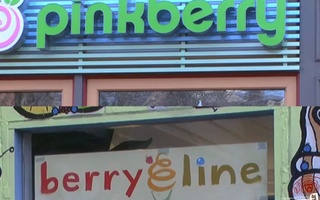When Harvard Graduate School of Education alumnus David A. Ticchi reached into his mailbox one day earlier this fall, his fingers brushed over familiar raised dots on an unusual surface.
While it is rare for book or magazine covers to be printed in Braille, the cover of the fall issue of the Ed School magazine, “Ed.,” was specially embossed in the cells of raised dots.
Ticchi—a faculty member at Newton North High School and supervisor of the School-to-Career Program—was featured in the magazine’s cover story, which described the evolution of education for individuals with disabilities in the United States.
Ticchi, who was born legally blind, received his masters and doctoral degrees from the Ed School at a time when accommodations for students with disabilities were still new to the University.
“‘We haven’t had many blind students here, but you let us know what your needs are,’” Ticchi recalled being told by the deans.
Although he grew up two decades before disabled students were protected under the law, Ticchi said he was able to receive an education through the public school system. An economics major in college, Ticchi said he had not planned on becoming a teacher until his former roommate invited him to teach speech and English at a Native American school in Santa Fe.
“I just felt I enjoyed very much teaching and being around young people—just the satisfaction of working with kids and seeing them improve,” Ticchi said.
Forgoing his acceptances to business and law schools, Ticchi then applied to the Ed School—a decision that gave him “opportunity.”
“I just felt totally welcome and supported,” Ticchi said.
Although Ticchi said he “wasn’t out to change the world,” he eventually became one of the first legally blind teachers to be certified in the country.
Earlier this year, when an update from the Ed School that included a discussion on diversity left out the disabled population, Ticchi spoke with Ed School Dean Kathleen McCartney about offering “something constructive” about remembering the disabled.
Months later, Ticchi’s conversation with the dean inspired the “Ed.” magazine story and Braille cover.
The issue’s cover and accompanying story sought not only to capture the changing conversation about diversity in education, but also to debunk the belief that Braille is difficult to learn.
A simple chart inside the magazine helped those who were not literate in Braille to read the word on the cover.
According to Ticchi, as a result of innovations in technologies that facilitate reading—such as audio books—only 10 percent of blind youth are learning Braille.
“If there was one thing that I could change in my education ... I wish I had learned [Braille] earlier,” Ticchi said.
Improving education is ultimately contingent on changing attitudes, he added.
“I just had a lot of self confidence,” Ticchi said. “I just always got what I needed done.”
—Staff writer Xi Yu can be reached at xyu@college.harvard.edu.
Read more in News
Scientists Talk Public PolicyRecommended Articles
-
Blind Man's ColourIf you read Kanye West’s blog for any reason beyond pure entertainment or comedy, then you may have heard of
-
 HBS Students Enter Prestigious Wine Tasting Competition
HBS Students Enter Prestigious Wine Tasting Competition -
 Pinkberry v. Berryline Taste Test
Pinkberry v. Berryline Taste Test -
Preview: Blind Boys of AlabamaCarter lived in Boston for much of his life and looks forward to returning for the group’s upcoming concert.
-
Storied Gospel Group Summons Past GloryThe Blind Boys seemed to enjoy their performance just as much as their delighted audience and swayed, jived, and chuckled through their energetic set.
-
Study Suggests Video Games Can Help the Blind NavigateA recent study from Harvard’s Laboratory for Visual Neuroplasticity at Massachusetts Eye and Ear Infirmary suggests that audio-based video games can help blind individuals to navigate physical spaces.













